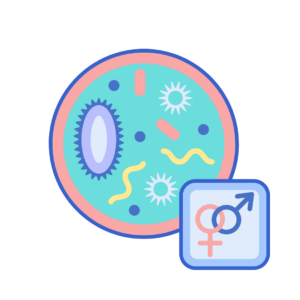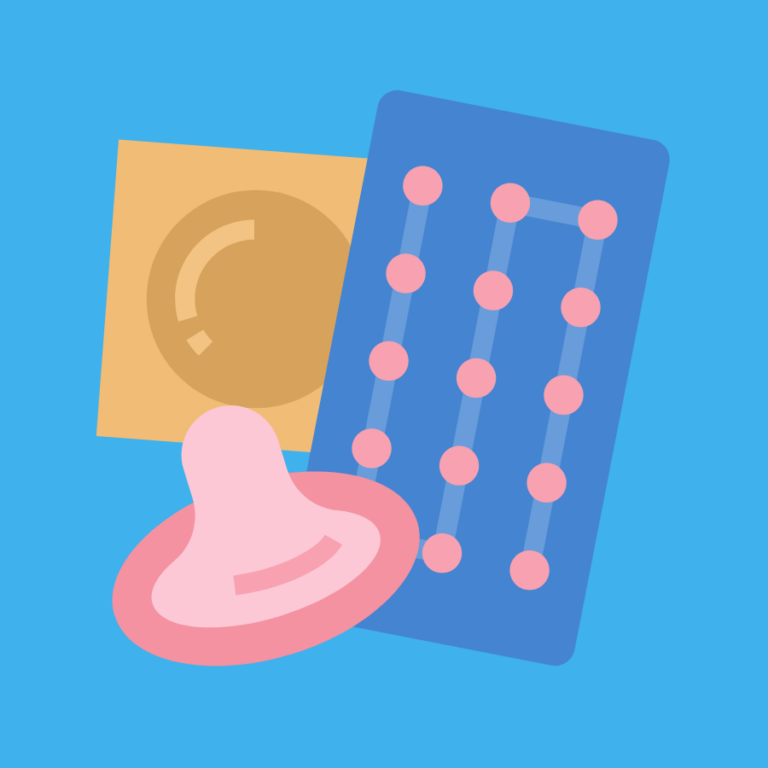You gotta look after yourself!
Sex can be awesome! And you know we’re hella sex-positive here at YEP! But if you want to have sex (or do things!), it’s important to look after yourself and others. People who are sexually active are at risk of sexually transmitted infections (STIs) and blood-borne viruses (BBVs). These are bacterial and viral infections you can get by having sex with someone, close contact or exchanging bodily fluids.

What is an STI?
STI stands for sexually transmitted infection. They are infections that may be passed on during sexual contact. This includes:
- kissing
- touching or rubbing genitals
- oral sex
- anal sex
- sharing sex toys
- contact with a sore or bodily fluid that has an STI present
- contact with an item that has certain STIs present on it e.g., bedding with infections such as crabs (pubic lice); scabies, or Monkeypox (other infections like chlamydia, gonorrhoea and syphilis can’t be transmitted simply by sharing a bed).
Should I be worried?
STIs can be a worry because most of them have no symptoms, so you don’t know you have them until you get an STI test from your doctor or health clinic. The most common STIs are chlamydia, gonorrhea and syphilis. Sometimes you may have symptoms down below like discharge, rash, itch, pain, puss or sores, or you may just feel a bit unwell; like we said though many STIs have no symptoms, so it’s important to get tested regularly. Most STIs are easy to treat, particularly when you get them early – so test early and test often, coz it’s the only way you’ll know.
What is a BBV?
Blood-borne viruses (BBVs) may be transmitted if blood, semen or vaginal fluids pass from a person who is infected with the virus into the bloodstream of another person via a break in the skin or mucous membrane. You are at risk of a BBV if you have anal, vaginal or oral sex without a condom or share needles, syringes or other injecting equipment with someone. The most common BBVs are Hepatitis A, Hepatitis B, Hepatitis C (which you can get from sharing needles like tattoo equipment or injecting equipment) and HIV.
Are STIs and BBVs common?

Yes. They’re not rare. In fact, chlamydia is an STI and is actually the most frequently reported infectious disease in Australia!
Are they dangerous?
They can be if left untreated. But are they a big deal? Usually not, as they are usually easy to treat when caught early. Should we have shame about them? Definitely not! Practising safer sex by using barrier methods (and yes that does include oral) is a great way to prevent getting STIs. By getting regularly tested and catching those infections or viruses early, most STIs can be easily managed, and some can be cured.
What if I think I have one?
If you think you may have an STI or BBV, you’ve hooked up with someone who’s tested positive, or it’s been more than 3 months since your last test and you have casual partners or 6-12 months and you have a long-term partner – look after yourself and your partner(s) and get tested. If you want to find out where to tested in Boorloo (Perth), check out our referral resource. For anywhere else in Western Australia visit the Get the Facts website for more info and services.
What if I get one?
Most STIs are easily treated, especially if they are caught early. So, get your regular tests and get treated! But it’s important you tell any partner/s that you’ve had sex with, that you’ve tested positive. Maybe this person is an ex you don’t want to talk to? Well you can head to the Better to Know or Let Them Know website and you can send an anonymous text or email to them that tells them someone has tested positive and they need to get tested!
Want more info?
Our resources below have more information about the different kinds of STIs, their symptoms, and more! So check them out if you want to have sex, be safer, and be a healthy sexual human.








